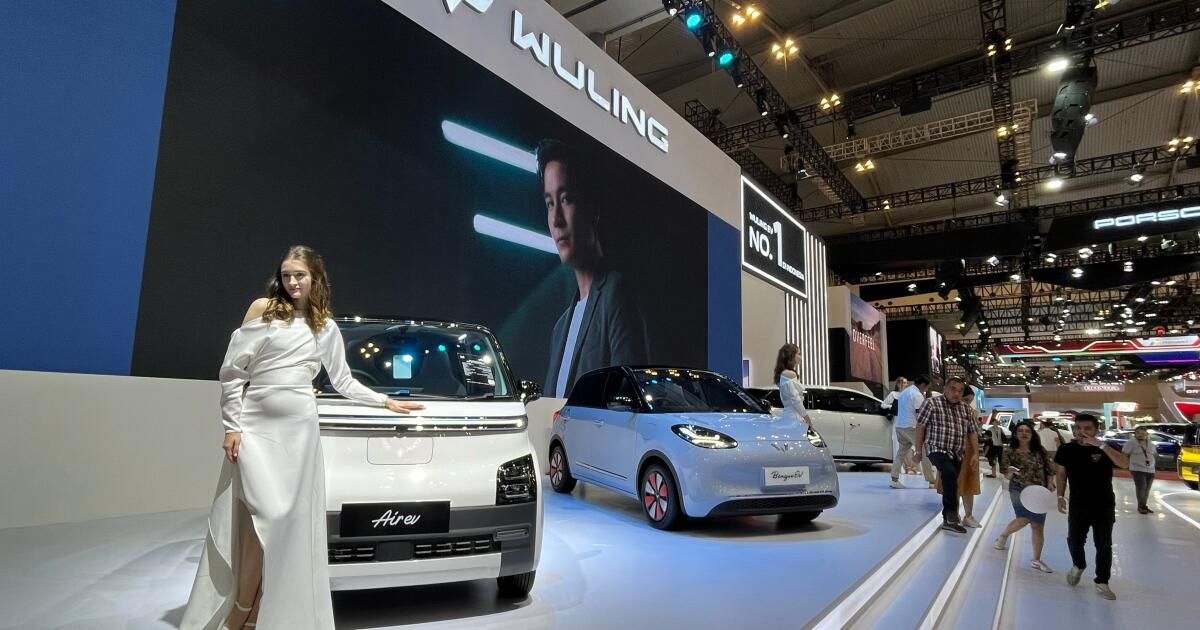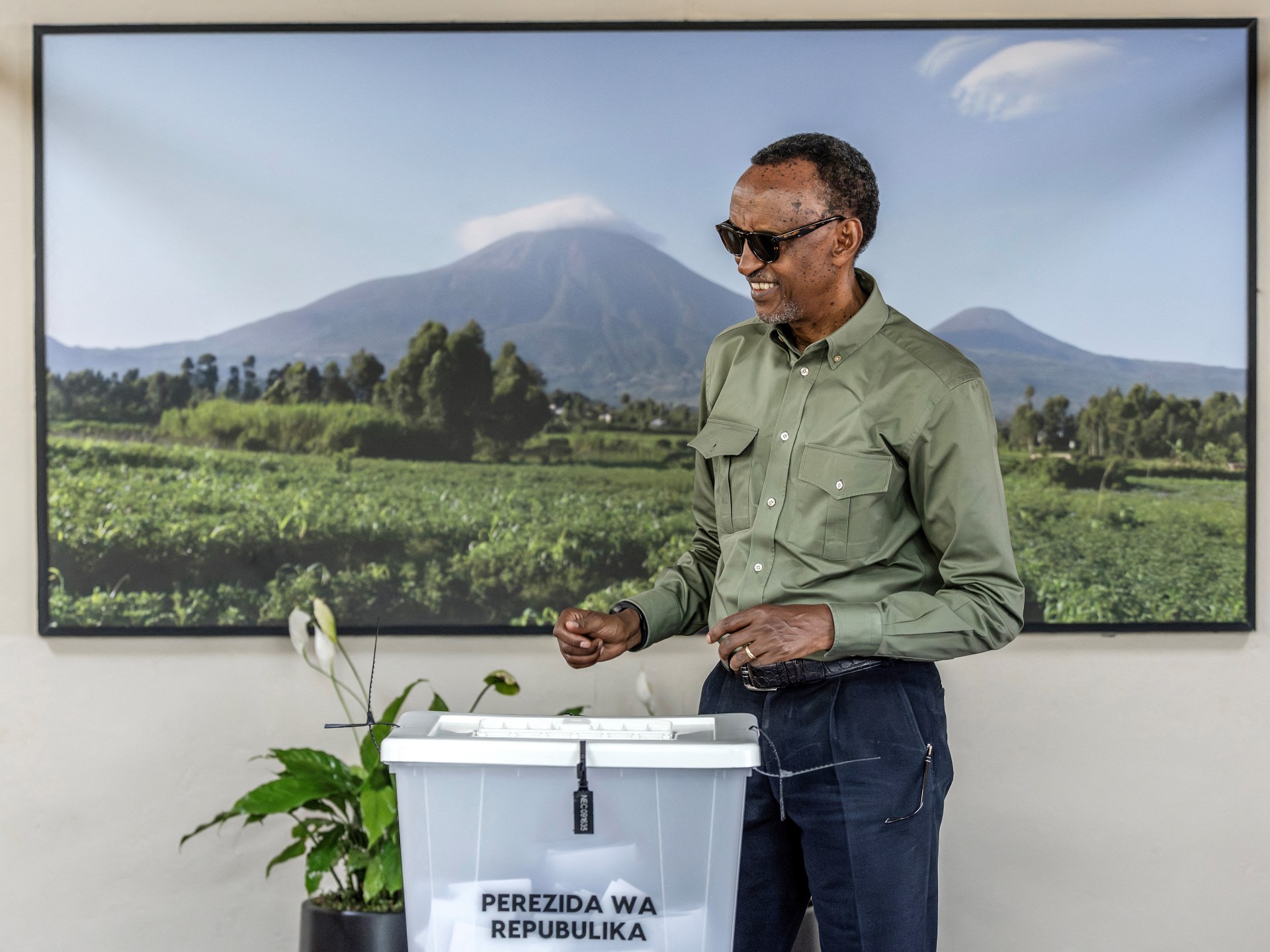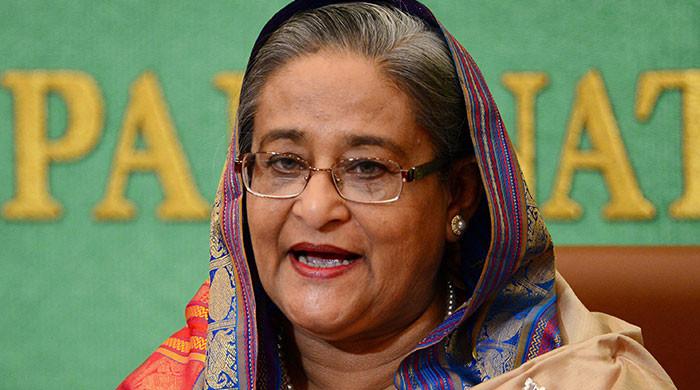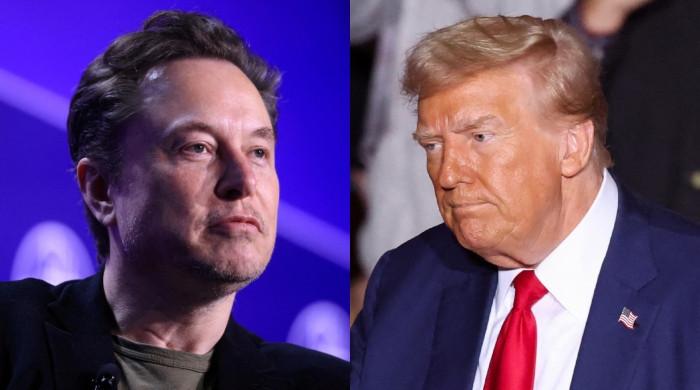Late last year, Chinese automaker BYD surpassed Tesla as the world's largest seller of electric vehicles.
But its cars will not be available in the United States in the near future. The Chinese car industry is facing tariffs in the United States and the European Union, so one of its most important markets is Southeast Asia.
Of the 31 passenger car brands represented at last month's huge Indonesia International Motor Show, held outside Jakarta, about a third were from China. The vast majority of them were electric vehicles.
Walking past fashion models and huge video screens, Safik Bahsein headed to the BYD booth, where he zeroed in on a BYD Dolphin, which promises 300 miles on a single charge and sells for the equivalent of $26,000.
Visitors look at a BYD car during an auto show last month. Chinese automakers have been gaining ground in Indonesia, especially in the electric vehicle sector.
(Tatan Syuflana / Associated Press)
It is one of three electric vehicle models that BYD currently sells in Indonesia, the world's fourth most populous country (with more than 275 million people) and the largest car market in Southeast Asia. The company's first shipment of 1,000 electric vehicles arrived last month.
“It’s very nice,” said Bahsein, 49, who works in the transport sector. “Compared to European cars, I think BYD has good prospects for the future.”
In his opinion, the quality of Chinese cars is comparable to European and Japanese ones. He said he was thinking of buying one for his wife, although he still prefers his Tesla Model 3, which he had to specially import two years ago because there are no dealerships in Indonesia.
The country's car market has long been dominated by Japanese brands Toyota, Daihatsu and Honda, but Chinese companies have been gaining ground, particularly in the electric vehicle sector, where Japanese automakers have lagged.
Chinese brands accounted for 43% of EV sales in the first half of 2024, according to the Indonesian Automotive Industries Association.
But getting people to buy electric vehicles has been especially difficult in Indonesia, where there are plenty of cheaper alternatives and a shortage of charging stations. Just 17,121 electric vehicles were sold last year, barely 2% of all car sales.
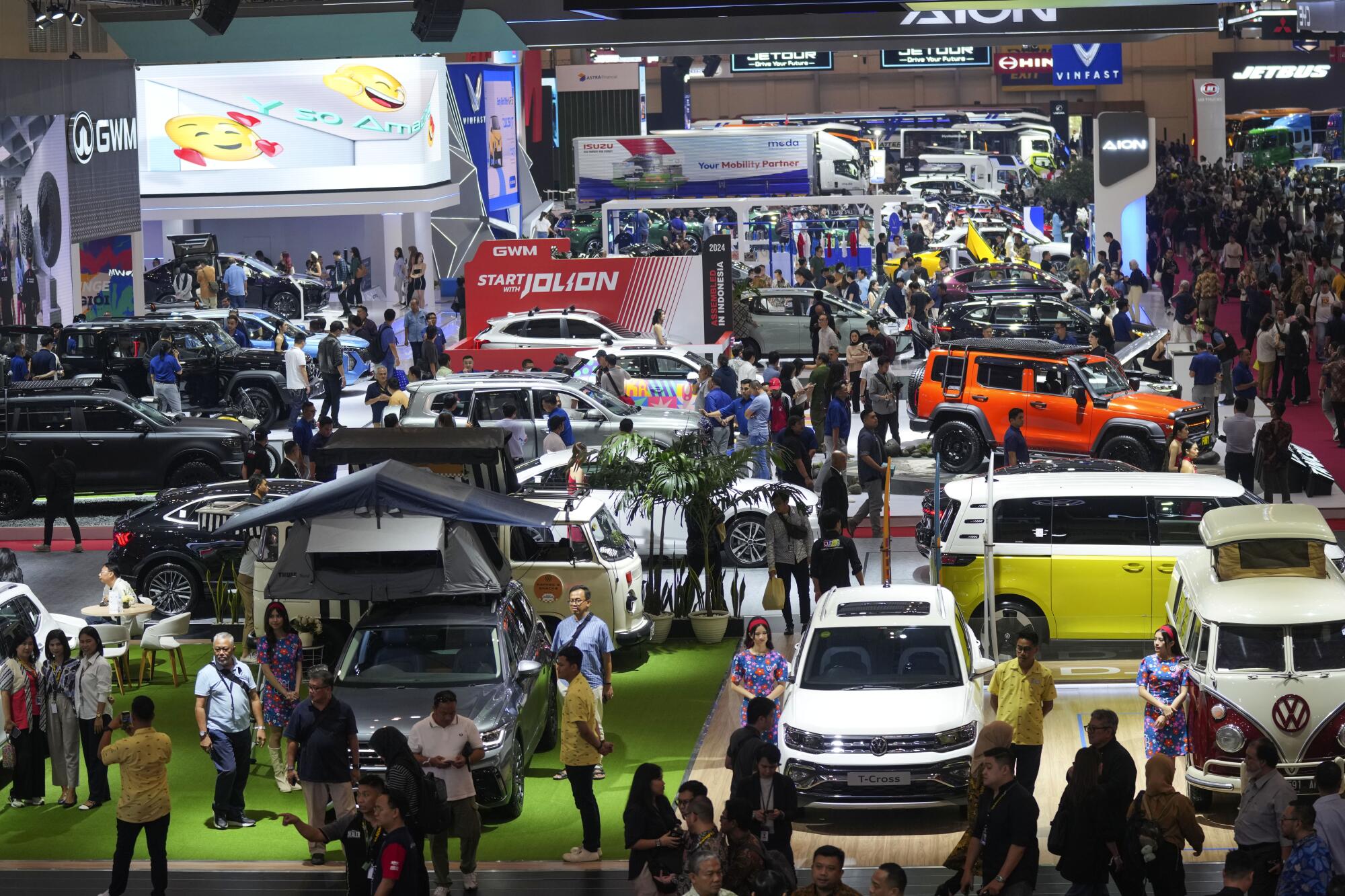
“Southeast Asia, specifically Thailand and Indonesia, is the beachhead, both as a market and a production base,” said Lei Xing, former editor-in-chief of China Automotive Review.
(Tatan Syuflana / Associated Press)
The Indonesian government has created incentives for EV buyers and set a target of selling 400,000 electric vehicles next year, but global data analytics firm Fitch Solutions has suggested a more realistic expectation is selling 56,000 vehicles by 2028.
For Goldie Liem, 24, who recently bought a Binguo EV from Chinese automaker Wuling, the biggest incentive was the license plate, which exempts Jakarta drivers from road restrictions meant to reduce traffic.
That saves him time on his daily commute, which can take up to two hours. He also saves on gas and pays about $60 a year in taxes, compared with the $430 he paid for his old Mazda.
“It gets me from point A to B, that’s all,” he said. “I haven’t tried to take it out of the city yet, because I’m not that brave, as far as charging stations and all that.”
It would take a lot more to get her husband to become an electric vehicle fanatic. The couple had gone to the auto show so he could see the gas-powered BMWs.
In China, the electric vehicle industry has flourished thanks to clean energy subsidies and access to comprehensive supply chains for battery technology and vehicle manufacturing. But intense domestic competition has led to price cuts and forced automakers to look abroad for growth.
According to the China Passenger Car Association, Brazil, Belgium, the UK, Thailand and the Philippines are the top export markets this year. Indonesia is among the fastest growing.
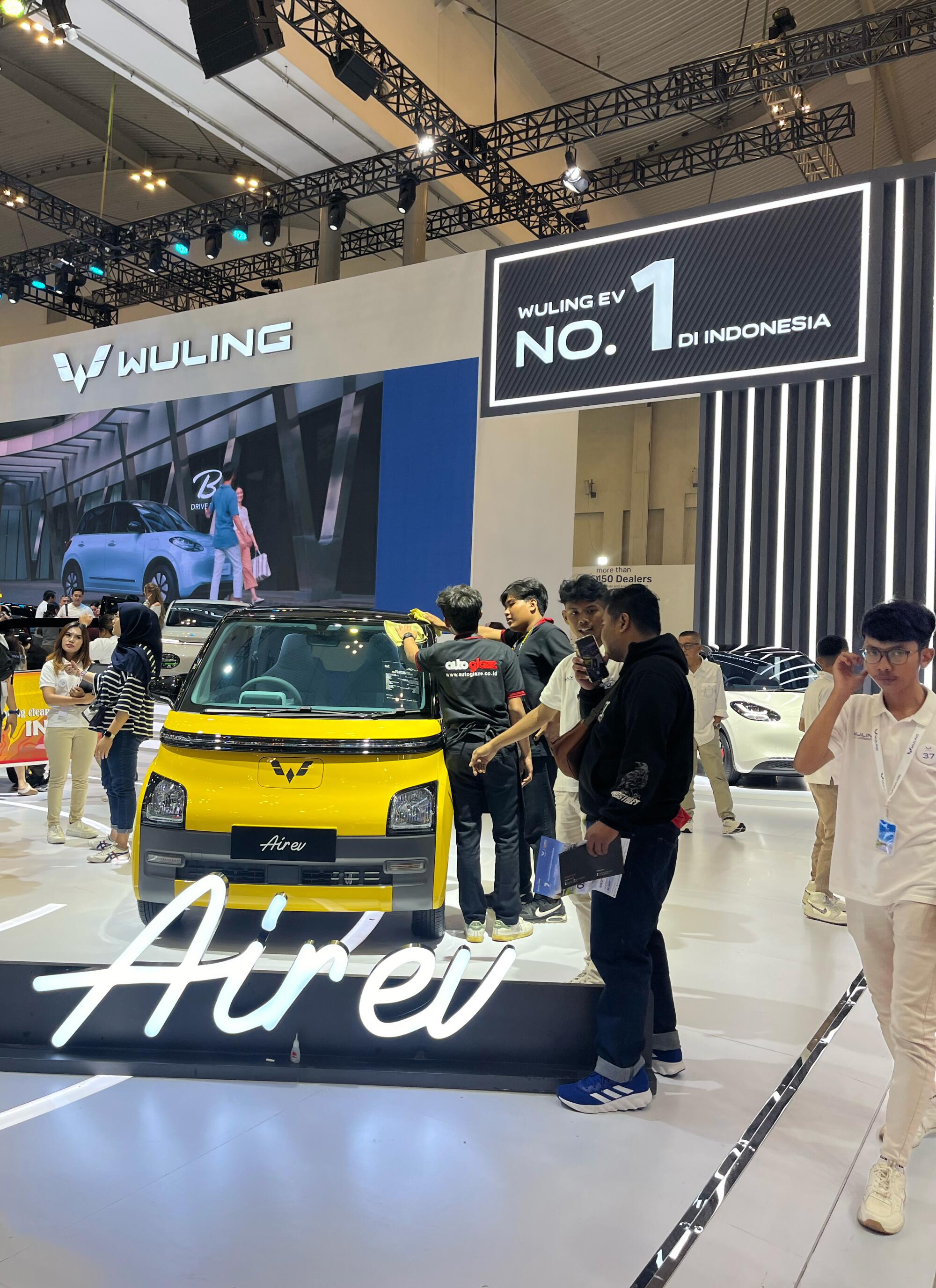
Wuling, a Chinese EV brand, accounts for about 40% of EV sales in Indonesia. However, electric cars still account for only about 2% of total car sales, due to insufficient charging infrastructure.
(Stephanie Yang/Los Angeles Times)
“Southeast Asia, particularly Thailand and Indonesia, is the bridgehead, both as a market and a production base,” said Lei Xing, an independent automotive analyst and former editor-in-chief of China Automotive Review. “It’s not like you go to Europe to compete against Volkswagen and BMW. Now, with the EV opportunity, Chinese brands are seizing it.”
BYD recently announced plans to build a $1.3 billion electric vehicle plant two hours from Jakarta that will begin operations in 2026, joining fellow Chinese brands Neta and Wuling in building electric cars in Indonesia.
It is no coincidence that Indonesia is also one of the world's leading producers of nickel and other minerals needed for electric vehicle batteries.
China has already invested billions of dollars in Indonesian nickel mines to obtain the strategic metal. Now Indonesia is trying to attract more Chinese funding to process its natural resources and manufacture cars in the country.
In an opinion piece published this year in state-run newspaper China Daily, a senior Indonesian transport official declared that his country’s electric vehicle industry is “open for business.”
The official, Rachmat Kaimuddin, deputy coordinating minister for transport and infrastructure, also encouraged Chinese automakers to take advantage of the “golden opportunity” of recently announced tax incentives for international car brands producing in Indonesia.
For brands like BYD, building more facilities in other countries is a key part of global expansion, particularly as the US and EU have threatened to implement tougher policies to prevent cheap Chinese models from driving out their own domestic manufacturers.
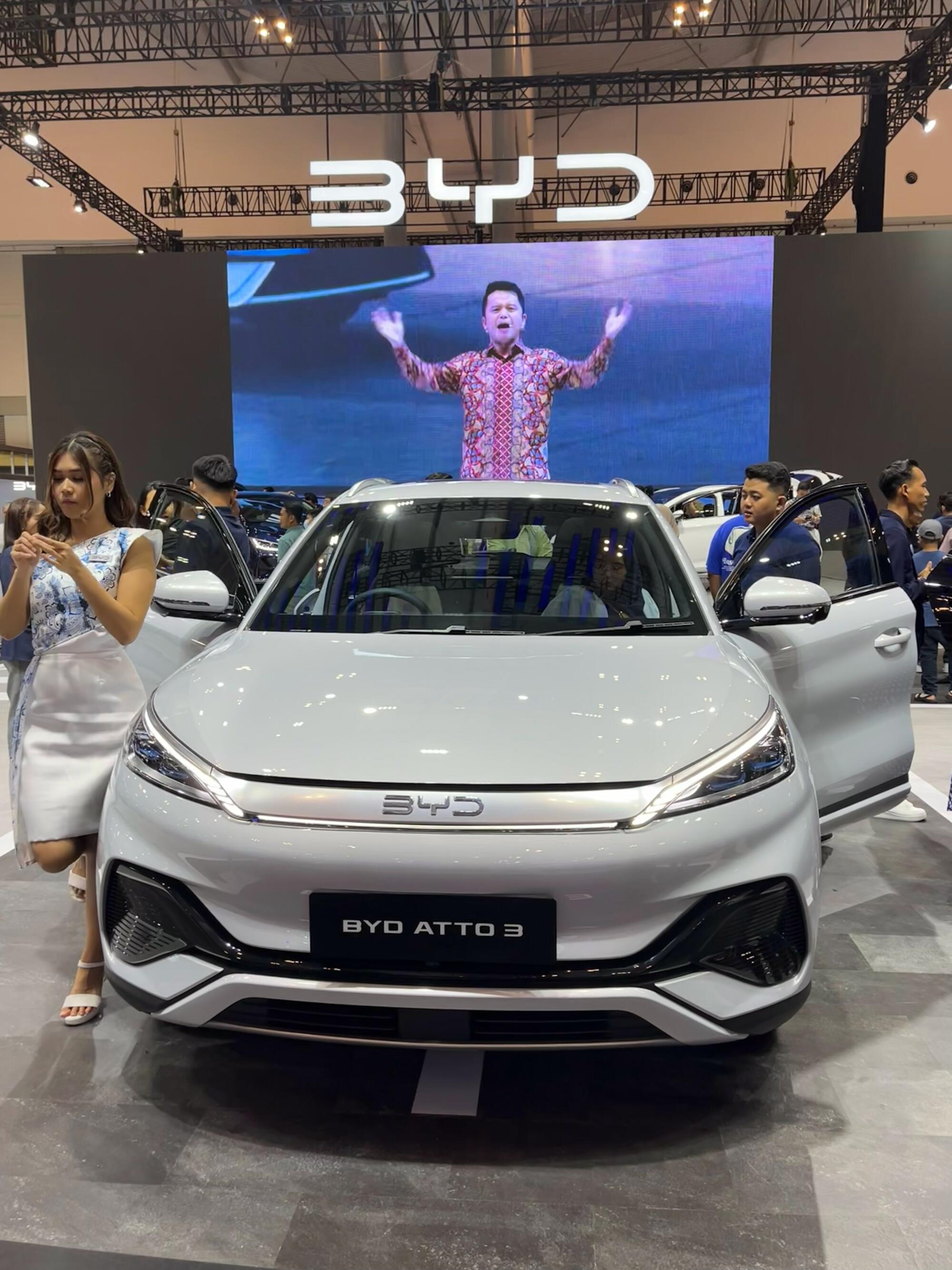
Major Chinese automaker BYD delivered its first 1,000 electric vehicles to Indonesian consumers this year as it expands manufacturing and sales in one of Southeast Asia's largest automotive markets.
(Stephanie Yang/Los Angeles Times)
Last month, the EU announced tariffs of up to 37.6% on Chinese electric vehicles. In the US, President Biden raised the current 25% tariff on Chinese electric vehicles to 100%.
BYD has also opened a plant in Thailand and announced investment plans in Turkey, Hungary and Mexico, which could help the automaker avoid import taxes in the United States and Europe on Chinese products.
“These are very strategic places,” said Xing, the auto analyst. “To be global, I think the U.S. and Europe are the last two frontiers.”
Meanwhile, there is Southeast Asia. At the auto show, Ricky Aristin, 23, spent two hours looking at cars that could replace his Honda Accord. The highlight was getting into the driver’s seat of a BYD Seal, an electric sedan that sells for about $44,000.
“It looks like an expensive car,” Aristin said. “It’s a good experience with the lowest priced car.”
However, he decided he would not buy an electric vehicle until Jakarta had more charging stations.

